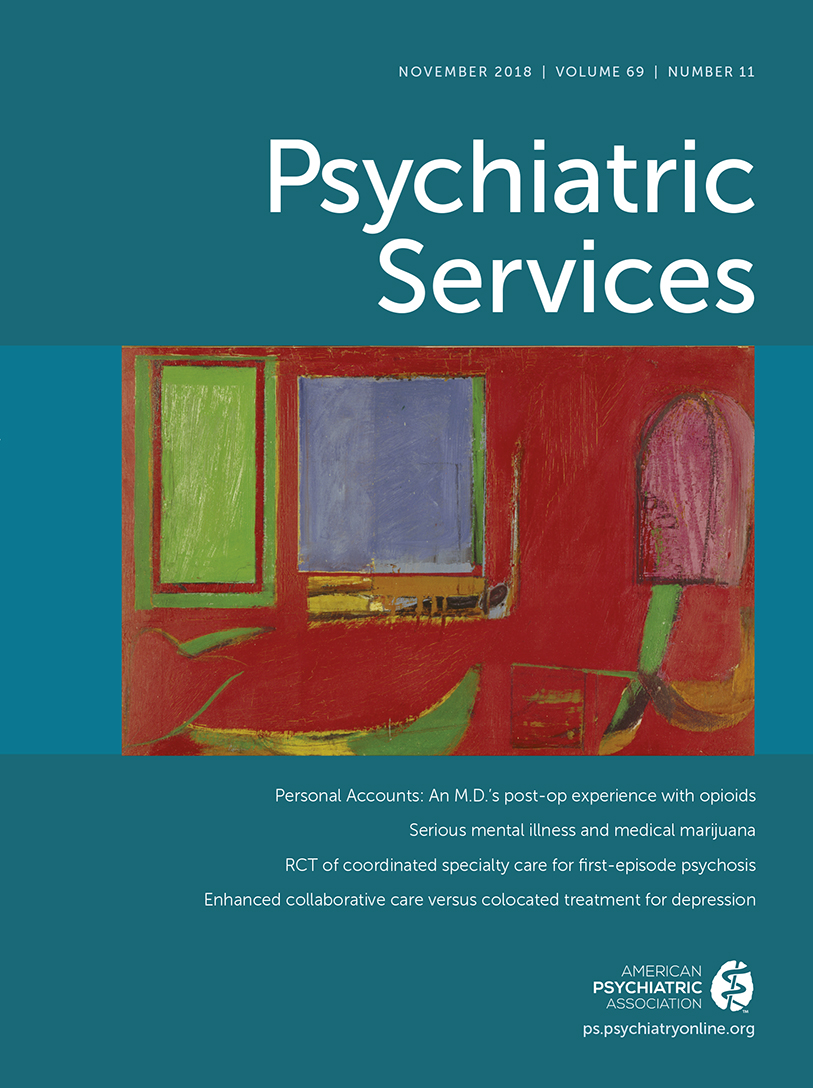Comparison of Collaborative Care and Colocation Treatment for Patients With Clinically Significant Depression Symptoms in Primary Care
Abstract
Objective:
The study compared clinical outcomes of depression treatment in primary care with a colocation model versus a collaborative care model (CoCM).
Methods:
Patients (N=240) with Patient Health Questionnaire-9 (PHQ-9) scores of ≥10 treated for clinically significant depression symptoms in primary care sites implementing the CoCM or a colocation model were compared. PHQ-9 scores were collected at baseline and 12 weeks.
Results:
From baseline to follow-up, reductions in PHQ-9 scores were 33% for the CoCM sites and 14% for the colocation sites, with an unadjusted mean difference in scores of 2.81 (p=.001).
Conclusions:
More patients treated in sites that used the CoCM experienced a significantly greater reduction in depression symptoms, compared with patients in sites with the colocation model. As greater adoption of integration models in primary care occurs, it will be important to consider potential implications of these results for promoting adoption of CoCM elements. Further replication of these findings is warranted.



